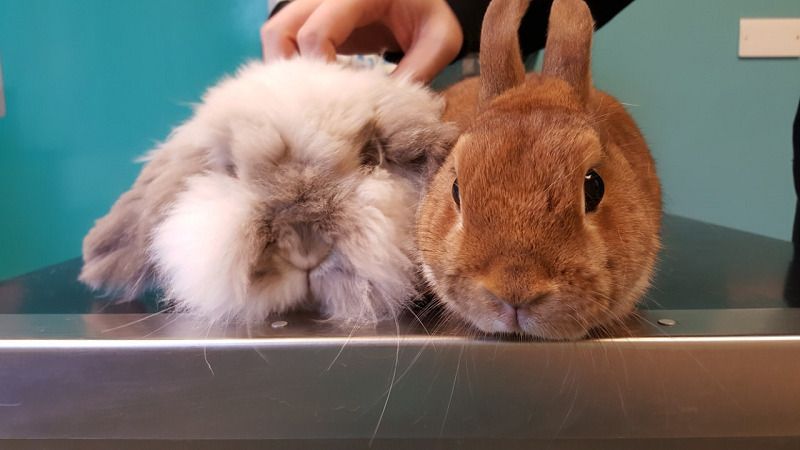NEW VACCINATION AVAILABLE
Is your rabbit up to date with vaccines?
Recently, a new strain of Rabbit Viral Haemorrhagic Disease (RVHD) has been found in the UK, which appears resistant to standard vaccination. A new vaccine has been developed to protect against this strain and we are now offering this vaccine to combat the disease.
Rabbits will still need their normal annual vaccination against myxomatosis and RVHD, but this new RVHD vaccine will provide additional protection.
Annual vaccination is recommended in all rabbits whether kept outside or inside in order to prevent Myxomatosis and Viral Haemorrhagic Disease, which are both very infectious and potentially fatal conditions.
Disease can be spread by small insects such as flies so even indoor rabbits can be at risk. Please contact us if you have any questions or would like to book in for vaccinations on:
0207 3878134
VIRAL HAEMORRHAGIC DISEASE IN RABBITs.
Viral Haemorrhagic Disease (VHD) in rabbits is an invariably fatal disease caused by a calicivirus. It was first recognised in 1984 in an outbreak in China that lasted nine months and killed an estimated fourteen million domestic rabbits.
The virus has an incubation time of 16 hours to three days. Rabbits are usually found dead with haemorrhages from the nose and mouth. The virus infects rabbits greater than 6 weeks of age (rabbits of 4 – 6 weeks may become infected and survive).
The virus is passed on through direct contact or on fomites such as bedding and clothing. It can be transmitted via insects such as fleas and birds may also play a part in the spread of the virus.
Rabbits that contract the virus may show signs such as respiratory distress, fever, reduced appetite, lethargy, convulsions and bleeding from the nose before dying. Although the virus usually results in 100% mortality - a small number of rabbits (5 – 10%) can overcome the initial infection and go on to develop liver disease. These rabbits present with jaundice, anorexia and weight loss and die after a few weeks from a severe hepatitis and internal haemorrhages.
The virus is very stable in the environment – persisting for over 100 days at normal temperatures, for 2 days at 60⁰ C and up to 225 days at 4⁰ C. The virus can also survive freeze/thaw cycles.
Preventing VHD
- The most important step in preventing VHD is annual vaccination of your pet rabbit. Vaccines are advised for all rabbits, even those kept indoors as the virus can be spread indirectly on bedding or clothing. Vaccines can be given from 5 weeks of age and protect against VHD for a period of 12 months
PLEASE SPEAK TO ANY OF OUR TEAM FOR MORE INFORMATION ON GETTING YOUR RABBIT VACCINATED
For more information on VHD, the Rabbit Welfare Association & Fund, whom we hold gold standard Rabbit friendly accreditation with, has a useful webinar and FAQ resource.
You may also be interested in:
-
New RVC study reveals breed predispositions and risk factors for rare adrenal tumour in dogs
Novel research from the Royal Veterinary College (RVC), in collaboration with the Faculty of …


